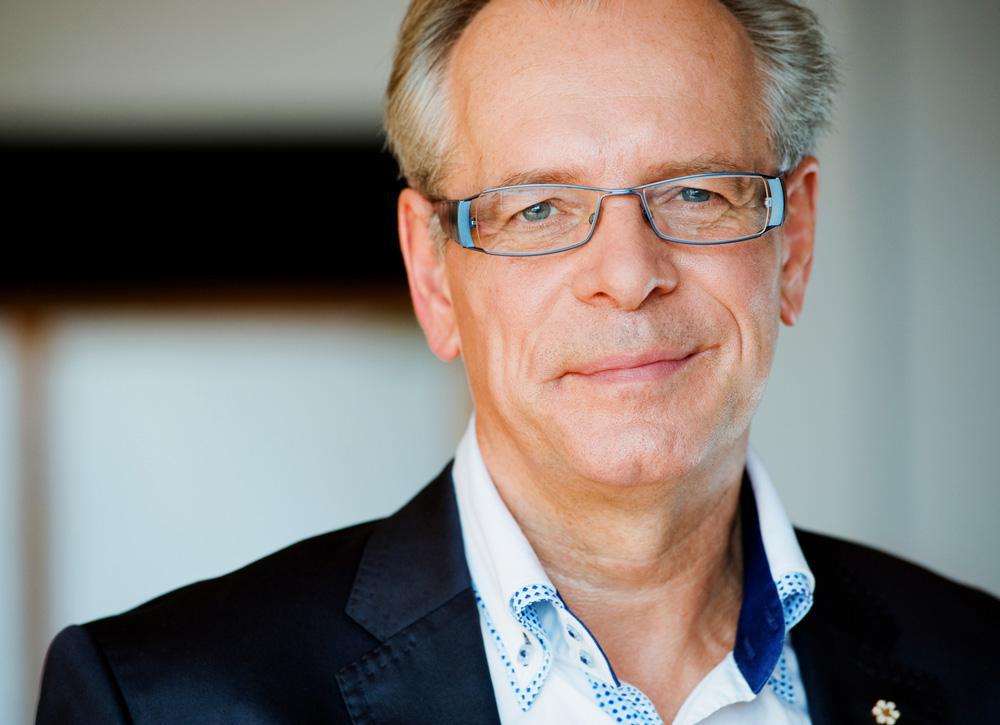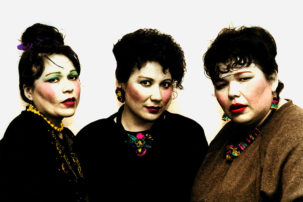Canada’s national arts funder, the Canada Council, will have a new leader come June 26. Yesterday, Simon Brault—currently CEO of the National Theatre School of Canada in Montreal and recently vice-chair of the Canada Council’s board—was identified as the council’s next director and CEO. Here, in a brief phone chat with Canadian Art, Brault discusses some of the opportunities and challenges that the organization, and the arts in general, are facing right now.
LS: Today and yesterday must have been very busy for you. How are you doing?
SB: Yesterday and today have been not only busy, but also bearing a lot of mixed emotions. It’s a big change after 32 years with the National Theatre School, and at the same time there’s a lot of excitement around the appointment. So it’s a strange passage.
LS: Perhaps in relation to that theme of passage: You’ve had many successes in raising the profile of the arts in Quebec. Yet Quebec’s government has a much different approach to culture than the Canadian government does, or most other provincial jurisdictions. How do you hope to achieve your Quebec-level success in a very different fiscal and cultural environment?
SB: What you say is true. I’ve been very active on the Montreal scene and also on the Quebec scene.
But I’ve also been running the National Theatre School for 17 years. During that time, I’ve been dealing with the federal government. Also, because the school is supported by 9 out of the 10 provinces, I know cultural bureaucrats across Canada and a lot of politicians on the federal and provincial levels. I have travelled a lot, especially after the publication of [my book] No Culture, No Future. I’ve worked with young and established artists from all over Canada and had many discussions with them.
So I think I’m very aware of the cultural—if I can use that word— and political differences between Quebec and the rest of Canada, especially in terms of the fact that [in Quebec] there is some kind of social consensus about the importance of culture as a dimension of the very existence of a nation. That is very different from the rest of Canada.
At the same time, I think that everything I learned over the past three decades will be useful in Ottawa.
I also believe my appointment [as CEO] indicates a level of trust in the arts in Ottawa. The appointment was made by the government of Canada [specifically the Minister of Canadian Heritage and Official Languages], but I’m not being appointed because I did things for any political party. It’s because of my public role as an arts advocate.
And I believe that if a very public arts advocate is appointed in the position of CEO of the Canada Council, I think that the artistic community can interpret that as a gesture, at least, of confidence towards the future of the Canada Council.
LS: Yes, the appointment of an arts advocate as CEO is heartening to see. However, federal funding for the Canada Council has held “steady” in recent budgets—meaning that, due to rises in inflation, it has effectively shrunk. How do you plan to deal with that?
SB: Well, I was vice-chair of the Canada Council when the Liberals, just before the election they lost, promised a doubling of the budget of the Canada Council.
But during all those years before, not a dollar was added to the budget of the Canada Council. It’s only since then that we have seen some permanent raises.
I think in the last two decades, the only government who added more money to the Canada Council has been the Conservative government. And when the government did its two rounds of cuts recently, the Canada Council was not touched.
What I’m trying to say is that, so far, the Canada Council has been protected—and in a sense favoured—even in the political and fiscal context we know now. There is a sense of trust vis-a-vis the role of the Canada Council.
We are also heading towards the 150th anniversary of the country in 2017. And if we don’t have the arts and artists involved on that occasion, the celebration will be very poor, very grey and very sad.
So I think that there’s some kind of alignment of the stars right now in terms of an attempt to convince Canadian citizens and the government that it’s time for reinvestment in the Canada Council.
LS: You’ve said in past interviews that you would like people to get away from economic arguments for culture. Yet, especially post-recession, we tend to be dealing with a context that demands economic rationales for almost every instance of public spending. How will that impact your strategy as leader of the Canada Council?
SB: Well, I have also said many, many times that we cannot afford not to have all those economic figures and arguments.
But what I’m arguing right now is that we need more than that.
For instance, I think that community-building is a very important issue in Canada. And I mean that at the national and the civic level.
I was trained as an accountant and as a lawyer, and at university I learned that the most important item needed to favour economic development is a sense of trust.
If people don’t have the trust in institutions, trust in public values, trust in stability, and trust in the future, the economy suffers. And I profoundly believe that the arts are big generators of trust—of social confidence, of social exchanges.
In that sense—in a very macro economic perspective—I think there’s a big case that we have to articulate. This case goes beyond the very simplistic transactional impact of the arts in terms of how many tickets were sold, how many people came out, how many hotel rooms were rented and restaurant meals bought, and things like that.
So it’s not a question of getting rid of the economic argument, but coming with something that is much more sophisticated and also much more real—because people don’t attend arts events because it’s good for the economy. They attend arts events, or they value the arts, because it’s good for their soul and it’s also good for their community.
Basically, I think we need to argue in this more expanded perspective.
LS: In the past, you’ve been vocal about the need for the arts to be more publicly engaging. How do you hope to drive that goal at the Canada Council when so many of its grants are awarded on the basis of artistic merit, rather than public engagement?
SB: Artistic merit has always been—and will remain, I’m convinced—the first criteria.
But there have always been other considerations. Sometimes they have been called audience development, or outreach, or sound management. These have had a real weight in decision-making—especially in grants to organizations (rather than grants to individual artists).
In 2014, sound management, to me, also means taking care of the “civic footprint” of an organization—its relationship to the direct neighbourhood.
So I think that public engagement, cultural participation, and the civic footprint of cultural organizations all need to be integrated in the [granting] criteria without changing the weighting of the artistic-excellence criteria.
I think this is highly possible; we see this trend all over the world. Just this morning, I was meeting a group that is working with major theatres in France to develop a protocol that will establish better relationships between major institutions and their direct environments.
There’s a very practical level to questions of engagement—like, how do you organize the entrance of your theatre, for instance—but engagement is also very fundamental in the positioning of the Canada Council.
The Canada Council needs to act as if the real clients of the council are citizens. We need to talk more directly to the people on the street with arguments and content that are important in their day-to-day lives.
At the same time, I really believe that artistic excellence for everybody is a strong ideal to promote.
Actually, in 1957 the Canada Council was created with a two-part mandate. One part was to promote the enjoyment of the arts, and the other was to support the creation of the arts. So promoting the enjoyment of the arts is something we need to pay more attention to.
LS: Is there anything else you’d like to add about your top priorities for the Canada Council?
SB: You know, I still have two months before starting in the position, and over the next two months what I want to do is consulting and reflecting—I want to arrive with some kind of very clear plan for the first year.
I don’t have that clear plan yet; I’m just sharing preliminary reflections about it. But it’s very exciting, and I really look forward to trying to make a difference at that level.
This interview has been edited and condensed.

 Simon Brault, the new director and CEO of the Canada Council. Photo: Maxime Côté.
Simon Brault, the new director and CEO of the Canada Council. Photo: Maxime Côté.







